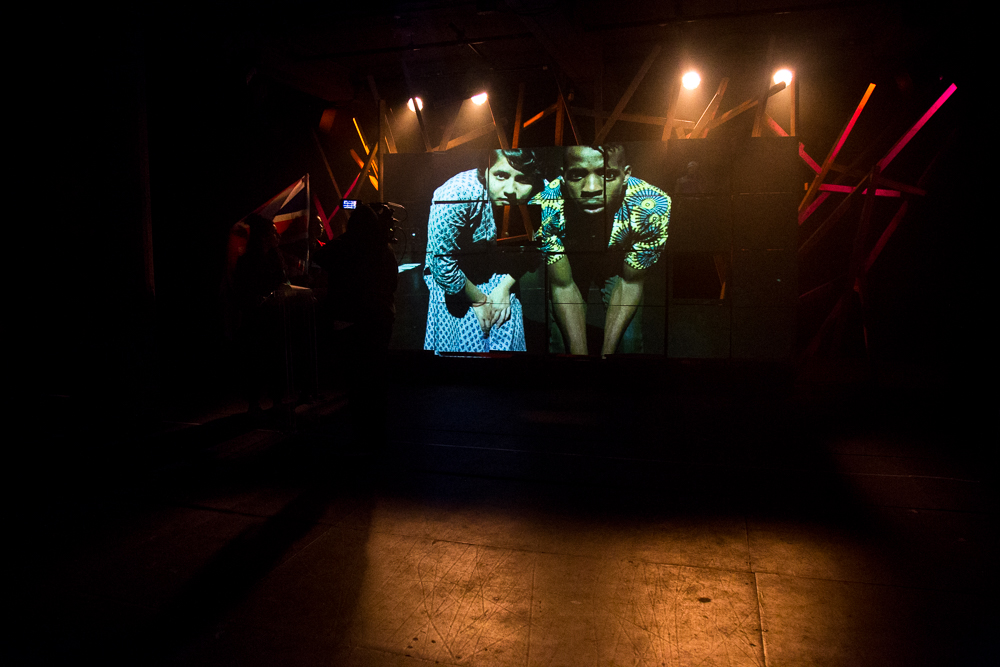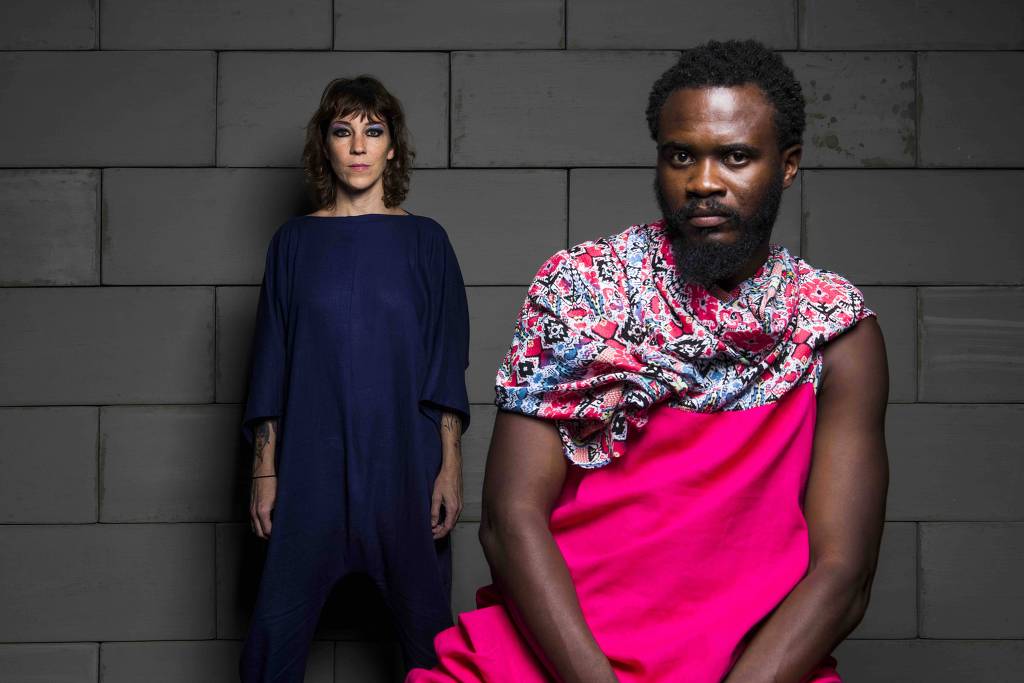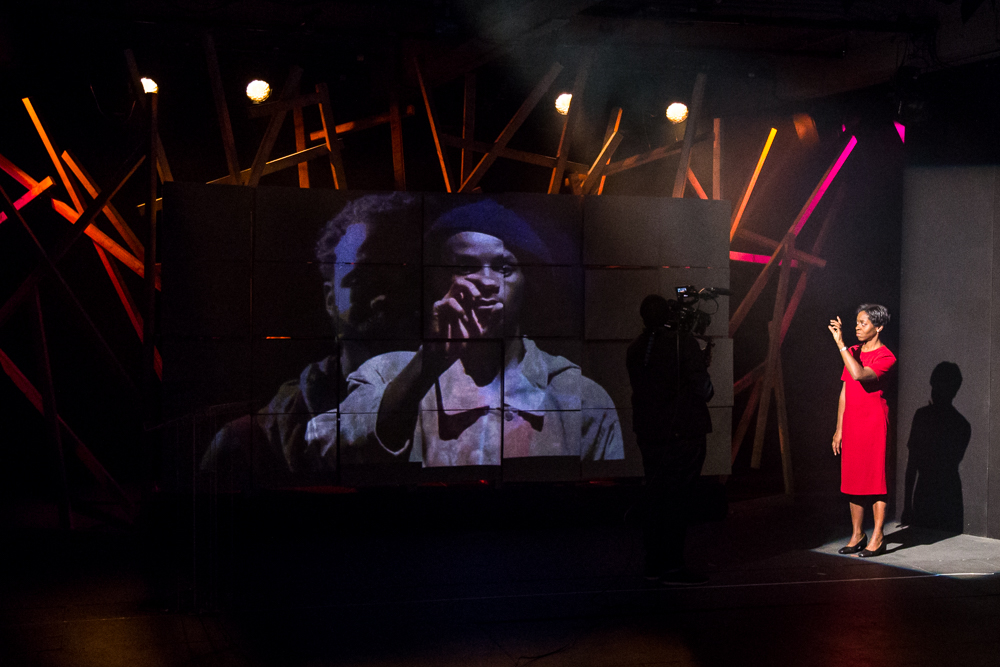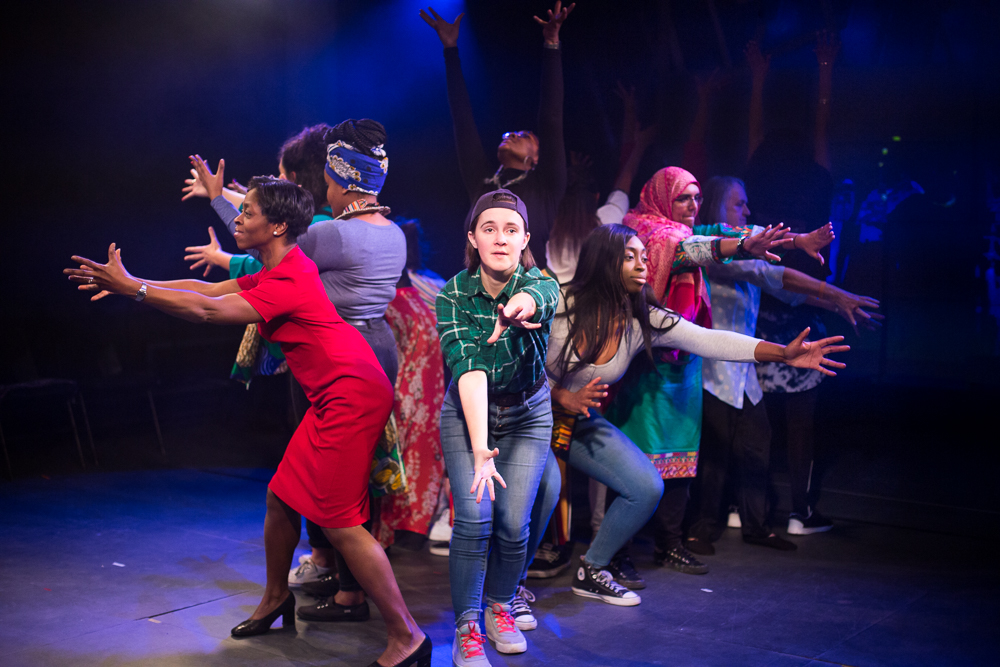divide to confuse, connect to remember
critical review by amilton de azevedo about “Babylon Beyond Borders”, coproduced by Pequeno Ato (with Sesc São Paulo), Market Theatre Lab, Harlem Stage and Bush Theatre.
It is found in Genesis 11:1–9 the narrative that verses about the construction of the tower of Babel — the origin myth that aims to explain the number of languages spoken throughout the world. If at the time “the whole earth had one language and the same words”, it was because mankind wanted to make themselves a name through the construction of “a city, and a tower, with its top in heaven” that the Lord realized that “nothing will be withholden from them, which they purpose to do”. For that, then, humanity was scattered “abroad upon the face of all the earth”.
The world Babel etymologically means blend, confusion. As if limited by our dispersal and incommunicability, we could never accomplish developments larger than divine ones. But we insist on building sky-high towers, for different reasons — and we keep on observing what happens to them.
In “Babylon Beyond Borders”, four theatres from distant locations in the world connect themselves, building digital bridges to present a unique spectacle. Simultaneously transmitted to audiences in four countries, this Babel blends without confusing. Johannesburg, London, New York and São Paulo. There is much that can be established concerning these four cities — in approximations and oppositions.

Respectively, Mwenya Kwabe (Market Theatre Lab/South Africa), Ruthie Osterman (Bush Theatre/United Kingdom), Pedro Granato (Pequeno Ato/Brazil) and Sarah Elizabeth Charles (Harlem Stage/USA) conceive the work. It is important to notice that the staging, plural, presents itself horizontally — and even though there is a leading theme that arranges the whole dramaturgy, there are multiple languages and aesthetical choices in each location.
A tower is elected in each town to trigger metaphors and reflections. The choices are more or less obvious — but even in USA’s WTC, the approach to the symbol is interesting: Elizabeth Charles lead off from 9/11 to reflect about its consequences in the narratives built from then on regarding foreigners.
Each in its way, all towers talk about this other — this human being that, scattered across the planet and returning to our own Babels, arrives with his own language, his own culture. The xenophobia related to migratory flows of the present days is unveiled in the stories about the Grenfell Tower fire in London. Bush Theatre alternates between dense narrative scenes about that and others, filled with irony, versing about the ascension of right-wing politics in Europe and declarations of the Prime Minister, Theresa May.
May said, in 2016, “if you believe that you are a citizen of the world, you are a citizen of nowhere”. And the search of this temporary Babylon, a territory between presence and digital, real and fiction, it’s precisely for being beyond borders — nor towers, nor walls: bridges.
In a curious coincidence, the South African tower name means bridge in portuguese: Ponte Tower. Projected as an futuristic building, it ends up abandoned — fact treated with some humour by the Market Theatre Lab. Bringing up stories about the litter accumulated at the tower, it is presented a reflection about how one sees an enterprise and what is actually made of it.

Brazilian cast consists of Gloire Ilonde and Karina Buhr, under the direction of Granato. Buhr, a well-known face for her trajectory as a singer — besides the acting career with Teat(r)o Oficina — shares her familiar origins, go straight on contemporary political matters of the country, sings and play percussion. Ilonde, Congolese immigrant, talks about his experience living in Ocupação 9 de Julho (an abandoned building occupied by popular movements for housing), of the Movimento Sem Teto do Centro (MSTC — Downtown Homeless Movement), about São Paulo, about witnessing the fire and further collapse of another occupied building in Largo do Paissandu — and also sings.
The synthetic choice of Granato, to have only two actors, is contrasted by the big female chorus of the Bush Theatre and the energetic Market Theatre Lab group. At the Harlem Stage, Elizabeth Charles sings and narrates, accompanied by a musician. This diversity in aesthetical choices ends up aggregating layers of reflections about the play propositions.
During the scenes being projected in the stage of Sesc São Paulo’s Anchieta Theatre, it is beautiful to notice Ilonde and Buhr watching. As if there, humanity could reconnect as one, even thought just for a brief moment, even if filled with “but”s and “if”s. The music constantly appears as a possibility of a universal language, transmitting sensations beyond language and sociocultural barriers.

In the four locations, direct speeches alternate with aesthetical resources. In UK, masks of Theresa May, ironic choreographies and levels of representation that go from a realistic flirt with documental theatre to funny type-constructions. In Brazil, opposing the play discourse, the calm and constant building of a wall — a reminder, in the materiality of the scene, of the reality that is around us.
In Johannesburg, the inventive use of plastic crates creates multiple places that situate different narratives. The Market Theatre Lab presents itself almost as a counterpoint — there, it’s not about the foreigner that arrives and how he is dealt with. It is about the relation of it’s own citizens with the rest of the world.
New York is more intimate. The choice of using Elizabeth Charles’ songs to begin and end the spectacle with proposes an atmosphere of poetical suspension of the daily life — operation that is not much used throughout the play. “Babylon Beyond Borders” carries poetry and beauty, but the harshness of reality doesn’t allow doing so without pain.
The search for what transcends our borders begins with the biblical tower as a metaphor, but it is constructed by its opposite: it is the scattering around the world, the blending and mixture of ways to exist, that can transform itself into power. It is not only about borders established by states, but the ones we establish cultural and socially, the ones that prevent us from seeing the other as who they are and what they lived. Starting off with the towers that we’ve built, we must remember the ones that insist on collapsing. And the ones that insist in not falling.



um comentário em “divide to confuse, connect to remember”